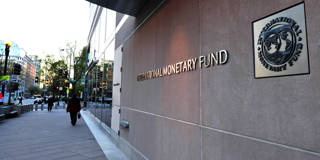International organizations must manage a constant tension between the interests of their most powerful member states and those of the rest. Three factors – leadership, effective internal processes, and transparency – are crucial to managing these strains.
OXFORD – International organizations are currently plagued by allegations of powerful states wielding undue influence over outcomes. These include recent revelations about Australia, Japan, Saudi Arabia, and other countries pushing back against the United Nations on climate change, suggestions that senior World Bank officials intervened to boost China’s ranking in the Bank’s Doing Business index, and suspicions that China influenced the World Health Organization’s approach to the COVID-19 pandemic.
Underlying all these controversies is the simple reality that powerful countries exert great influence over multilateral organizations. But their clout does not render multilateralism impossible. Rather, it is a force that must be actively managed and counterbalanced.
The undue influence of some countries in multilateral institutions is of course not new, but the shifting global balance of power has brought it back into focus. For example, the recent Doing Business fracas prompted arguments implying that otherwise technocratic and evidence-based institutions such as the World Bank were at risk of being led by managers too attentive to China’s concerns. As Anne Krueger writes, “Like Caesar’s wife, IMF and World Bank leaders must be well above suspicion in overseeing these institutions’ work and safeguarding the integrity of the data on which that work relies.”

OXFORD – International organizations are currently plagued by allegations of powerful states wielding undue influence over outcomes. These include recent revelations about Australia, Japan, Saudi Arabia, and other countries pushing back against the United Nations on climate change, suggestions that senior World Bank officials intervened to boost China’s ranking in the Bank’s Doing Business index, and suspicions that China influenced the World Health Organization’s approach to the COVID-19 pandemic.
Underlying all these controversies is the simple reality that powerful countries exert great influence over multilateral organizations. But their clout does not render multilateralism impossible. Rather, it is a force that must be actively managed and counterbalanced.
The undue influence of some countries in multilateral institutions is of course not new, but the shifting global balance of power has brought it back into focus. For example, the recent Doing Business fracas prompted arguments implying that otherwise technocratic and evidence-based institutions such as the World Bank were at risk of being led by managers too attentive to China’s concerns. As Anne Krueger writes, “Like Caesar’s wife, IMF and World Bank leaders must be well above suspicion in overseeing these institutions’ work and safeguarding the integrity of the data on which that work relies.”